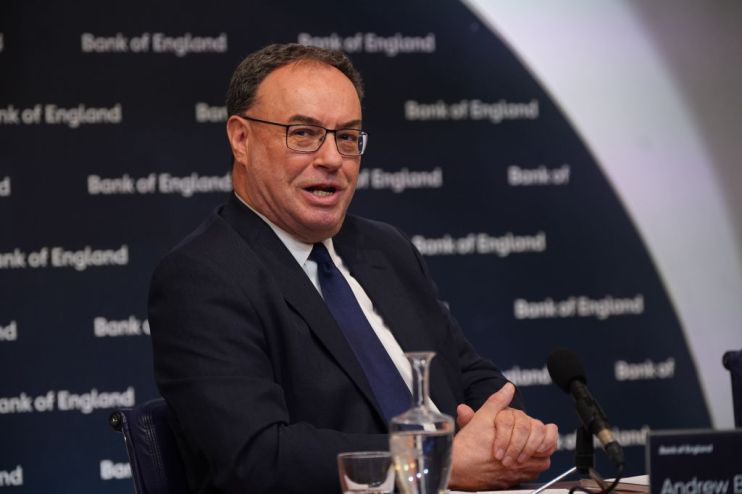UK inflation drops for third straight month in sign Bank of England is nearing end of interest rate hikes

Inflation in the UK is falling faster than experts expected which may convince the Bank of England to consider ending its aggressive campaign to tame prices with interest rate rises, official figures out today reveal.
The rate of price increases in Britain dropped to 10.1 per cent last month, down from 10.5 per cent in December, according to the Office for National Statistics (ONS).
Inflation has now been running in the double-digits for five straight months, eroding household spending power rapidly.
Numbers from the ONS yesterday showed real incomes fell 4.3 per cent in the three months to December, one of the steepest drops since records began two decades ago.
January’s drop was quicker than investors forecast but in line with the Bank of England’s projections earlier this month.
“The message from today’s inflation release was clear: domestic inflationary pressures are fading” Ruth Gregory, deputy chief UK economist at consultancy Capital Economics, said.
“This suggests that the end of the Bank of England’s tightening cycle just got a bit closer,” she added.
Living costs climbed to a peak increase of 11.1 per cent last October and have been falling ever since. Core inflation – which strips out volatile items like food and energy and is a more accurate measure of underlying price pressures in an economy – fell to 5.8 per cent from 6.3 per cent.
UK inflation has raced ahead but is beginning to drop

Bank governor Andrew Bailey and the rest of the monetary policy committee (MPC) have backed 10 successive rate hikes, including several outsized 50 basis point rises and one 75 basis point increase, taking them to a 15-year high of four per cent.
Samuel Tombs, chief UK economist at consultancy Pantheon Macroeconomics, reckons inflation will drop to two per cent by the end of the year, in line with the Bank’s target, “supporting an MPC pause” on 23 March, he said.
The Bank reckons inflation will collapse to around four per cent by Christmas.
A sharp decline in petrol prices and airline tickets led the UK’s consumer price index, the official measure of inflation, lower for the third month in a row, although the rate is still the highest for around 40 years.
“While any fall in inflation is welcome, the fight is far from over,” chancellor Jeremy Hunt said.
“High inflation strangles growth and causes pain for families and businesses – that’s why we must stick to the plan halve inflation this year, reduce debt and grow the economy,” he added.
Interest rates have hit a 15-year high to tame inflation

Experts said there are signs firms are hiking prices more slowly due to cost inflation easing and consumer demand retreating.
“There are further indications that costs facing businesses are rising more slowly, driven by falls in crude oil, electricity and petroleum prices. However, business prices remain high overall, particularly for steel and food products,” Grant Fitzner, chief economist of the ONS, said.
Food prices surged 16.7 per cent over the year to January, one of the quickest rises ever, although down over the last month.
Poorer Brits are being crushed by an inflation rate of more than 15 per cent, the highest of any income group, mainly because they spend a greater chunk of their monthly budgets on food and energy.
The wealthiest meanwhile are grappling with a 10.7 per cent inflation rate, the ONS said.